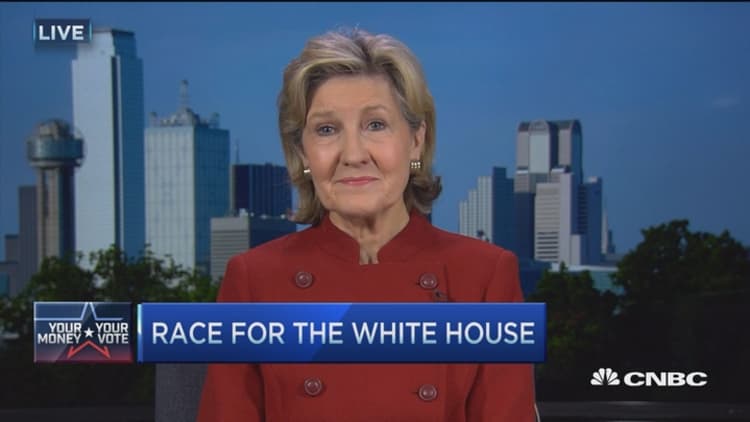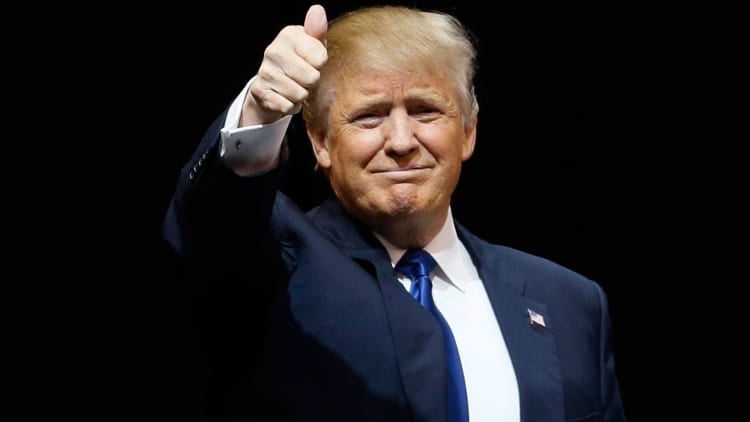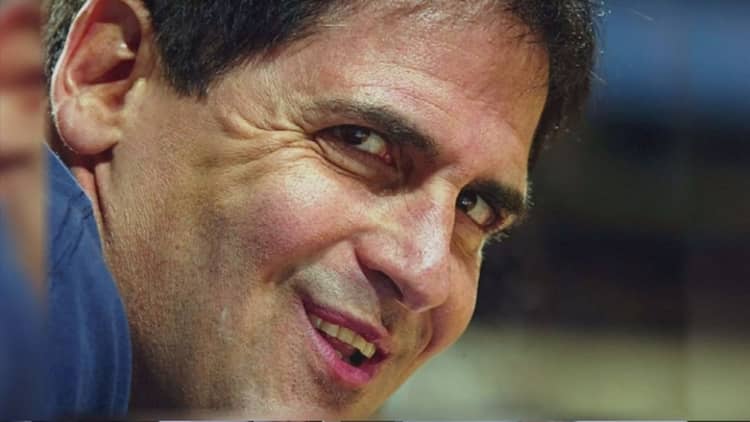


It's early days, but the victories in New Hampshire's primary by Donald Trump and Bernie Sanders puts two of the candidates most likely to spook Wall Street in the lead.
Trump has been unnerving Wall Streeters with his unpredicatability and off-the-cuff remarks, but analysts say the financial community — and markets — would ultimately back a Trump run, particularly if it is against Bernie Sanders.
The Vermont U.S. senator is a self-proclaimed socialist who wants to create new social programs by taxing banks, financial transactions and wealthier Americans. Sanders took 60 percent of the vote in New Hampshire Tuesday over Hillary Clinton, who barely won Iowa last week but is still viewed as the front-runner nationally.
Both Sanders and Trump have tapped into the national mood, said Brian Gardner, director of Washington research at Keefe Bruyette and Woods. "They're both populists ... and in Trump's case he's a demagogue. I think there's a deep level of frustration in the economy ... that the economy is rigged, that the deck is stacked against them. I think there's just a widespread agreement with that sentiment. People disagree with what the causes are and what the cures are," said Gardner.
Gardner said Trump's rise and staying power have been a surprise. He described him as having the same type of flamboyance and style as former Italian Prime Minister Silvio Berlusconi. "There are similiarities in a larger-than-life persona, huge egos. Both are media creatures, very populist demogogues. Short on substance, long on style."
Read MoreNew Hampshire's primal scream will have consequences
Gardner said uncertainty about the election seems to be hurting financial markets. For months, the market was comfortable with the view that Clinton would win even though she is not loved by Wall Street. But that changed when Clinton barely edged out Sanders in Iowa and was down by more than 20 percent in New Hampshire.
The Democrats do have an edge and Clinton could probably beat Trump, but that's no guarantee. Gardner said the Republicans have an advantage in voter enthusiasm with much-larger-than-normal turnouts in both Iowa and New Hampshire.
"This is an overwhelming victory by Bernie Sanders. If the market looks at this, he's got a better chance than it's been discounting," said Dan Clifton, head of policy research at Strategas. Clifton said Sanders' surge came from independent voters but when looking at just-registered Democrats in New Hampshire, the race was much closer with Sanders leading 52 to 48 percent. That could help Clinton in states with closed primaries.
"There's clearly something happening where voters are turned off by Hillary Clinton, and this race will go on for some time. South Carolina is critical," said Clifton. "Clearly her image is tarnished. Nobody thinks she's honest or trustworthy."
Clifton said that at times of economic uncertainty, the incumbents are typcially voted out.
For now, the question is how the results for New Hampshire and Iowa impact other primaries, if at all. The key for Clinton will be to show a dramatic lead in the Feb. 27 Democratic primary in South Carolina, which she is expected to win with the support of the African-American community.
Gardner said the same thing hurting Clinton is hurting Jeb Bush.
"Hillary and, I think, Jeb Bush face defects in their candidacies, which are predicated on experience, and I think they're both tone-deaf to what the electorate wants. They're paying lip service. Both are falling back on rhetoric and experience at a time when frustration is so high that people just don't care," said Gardner. "To some extent both of them are backward-looking at what they used to do, when voters are looking for new ideas and neither of them can connect to that."
Sanders plays into the thirst for new ideas with his promise of free tuition and breaking up banks. "You can make the argument his ideas are somewhat discredited. His prescription does not cure the patient. It probably makes it worse. But he taps into that level of anger," he said.
"He's not running on his experience in Washington. He's running on what he wants to do in the future. He taps into something in voters," said Gardner.
Gardner said many of the young Sanders voters don't remember the Soviet Union or Cold War. "They hear a Utopian call and don't have anything to compare it to. It sounds great," he said. Gardner said Sanders successfully gets his followers riled up about banks, just as Trump has done against immigration.
"It's tough to quantify, and there's obviously other factors going on in the market right now. It's tough to say this is driving the market, but certainly when you scratch the surface a little bit, there's this anxiety about where the U.S. is going, where the election is going, and what's policy going to look like a year from now," he said.
Gardner said the 2016 presidential race had been viewed as Clinton's to lose but now the odds of her winning the nomination have certainly been lowered. Trump is also defying conventional wisdom that he would fizzle and a more centrist candidate would take the lead.
"It looks like Trump has a clear path to the nomination," said Gardner, adding that could make markets more nervous.
"People start hearing his rhetoric, which is generally nationalistic and they wonder where the U.S. place in the world is going to be going forward. I think there's a general contradiction on the Trump argument," he said. "On one hand he says he's really going to go in and shake things up and on the other hand he says his temperament is going to be totally different when he's in office. … People want certainty in government. He's all about uncertainty."
Trump has already taken stands that some view as non-Republican, including his comments about getting the government to negotiate on drug prices and also his opposition to trade agreements.
"As much as we're looking at this Trump phenomena, two-thirds of the Republican party voted against him. How is the non-Trump world looking at this and thinking what the world is going to look like a year from now," he said.
Ohio Gov. John Kasich came to the fore as the No. 2 candidate in the GOP, ahead of Ted Cruz, Jeb Bush and Marco Rubio.
Market participants were relieved last week when Rubio placed a solid third in the Iowa caucuses after Cruz and Trump, but he was weakened as a candidate over the weekend by his debate performance and he took only 11 percent of the GOP vote in New Hampshire.
Wall Street would like to see businessman and former New York Mayor Michael Bloomberg enter the race, and a race with the two extreme candidates might lure him in. But Gardner said the question is whether he would even jump in since the track record of third-party candidates is poor.
Of course, everything could change in a matter of weeks, as more primaries are held. But Trump's strong lead in New Hampshire and the split among the candidates viewed as the Republican establishment — Rubio, Bush and Kasich — has given him the edge for now.
"When Kasich comes out of nowhere and takes second place, that tells you the whole thing is fluid," said Peter Boockvar, market strategist with Lindsey Group. "When we know who the candidates are, that's when people can start to postition themselves."
If the race did come down to Sanders and Trump, Wall Street would clearly support Trump.
Boockvar said Trump needs to surround himself with seasoned Washington and political leadership, not just his business friends. "That would make him seem more formidable, not like the loose canon that he is," said Boockvar.
"I would think Wall Street would throw its support behind Trump because Trump understands Wall Street and he is a businessman himself," said Sam Stovall, chief U.S. equity strategist with S&P Capital IQ.





